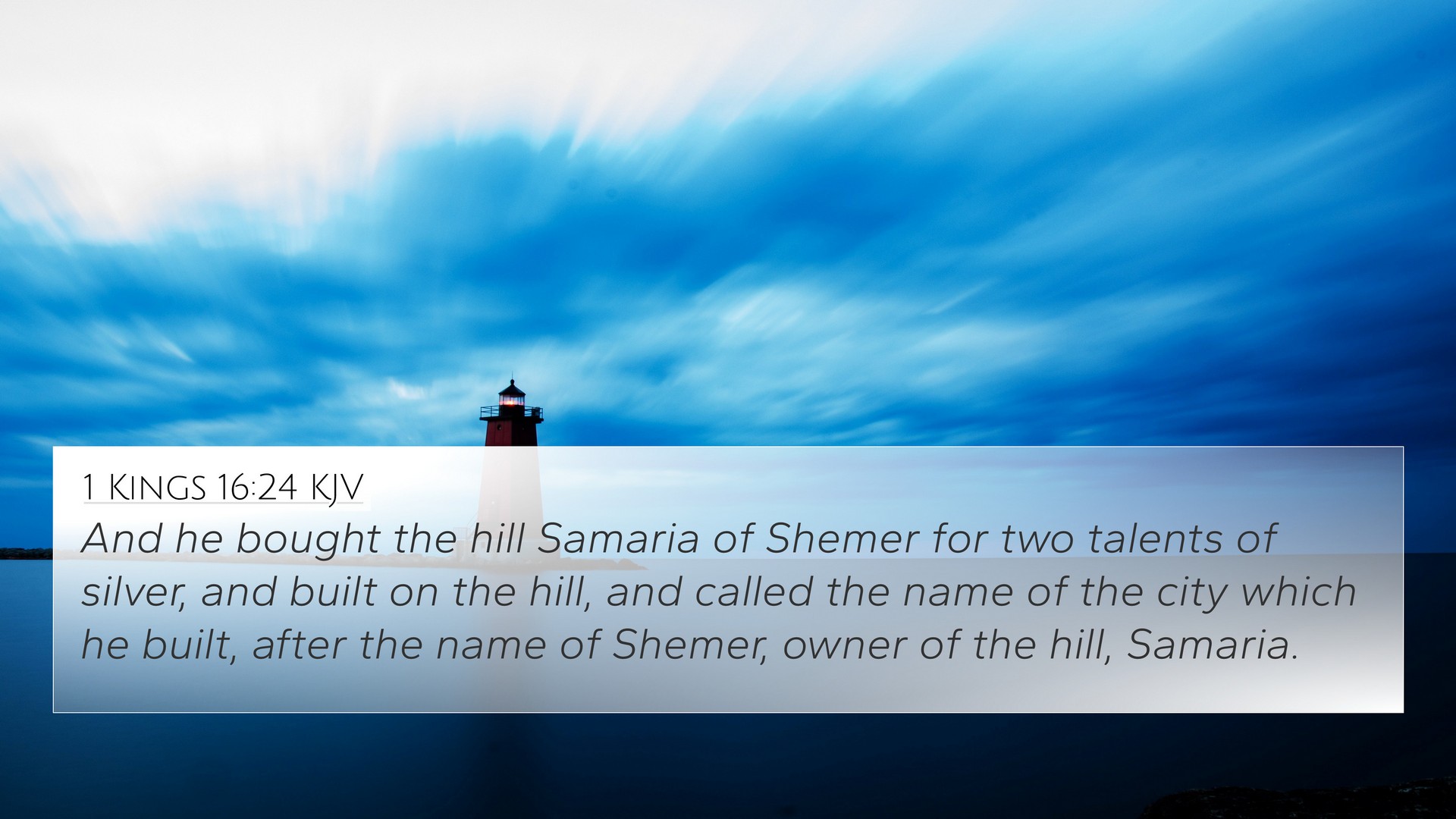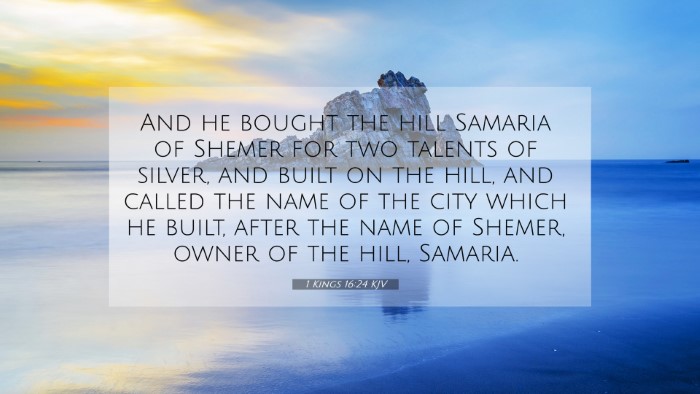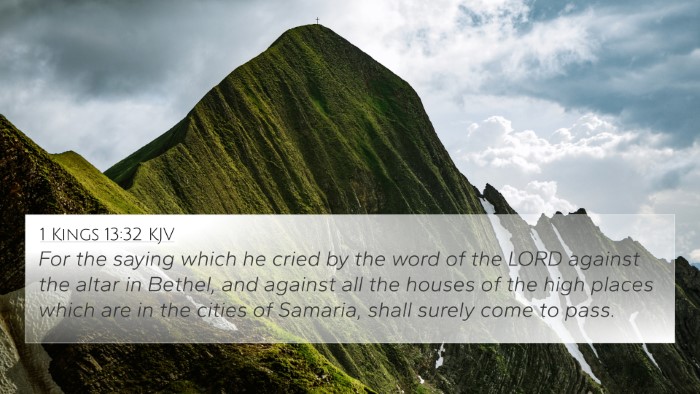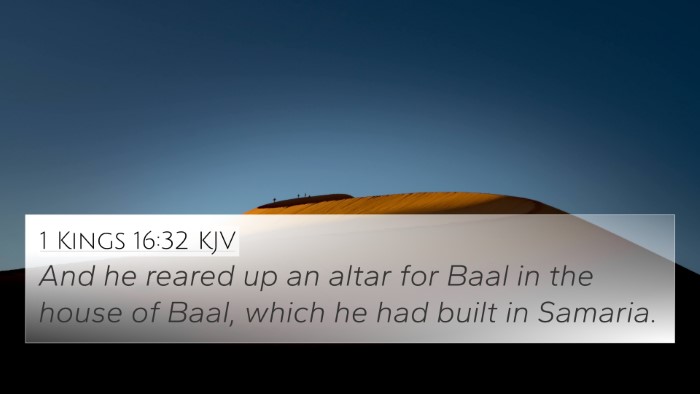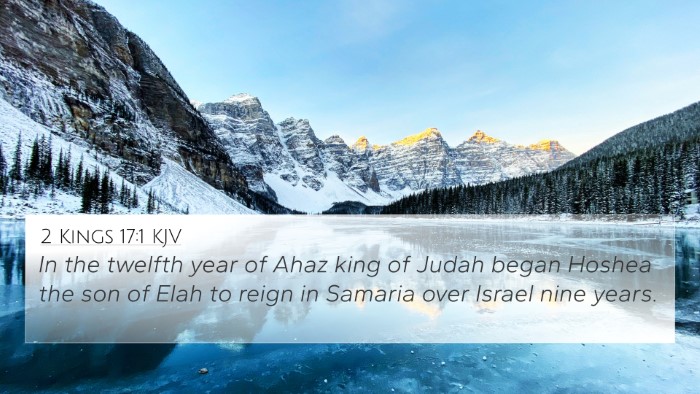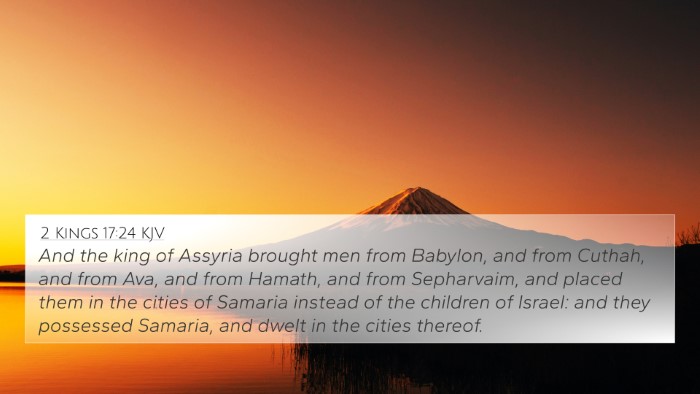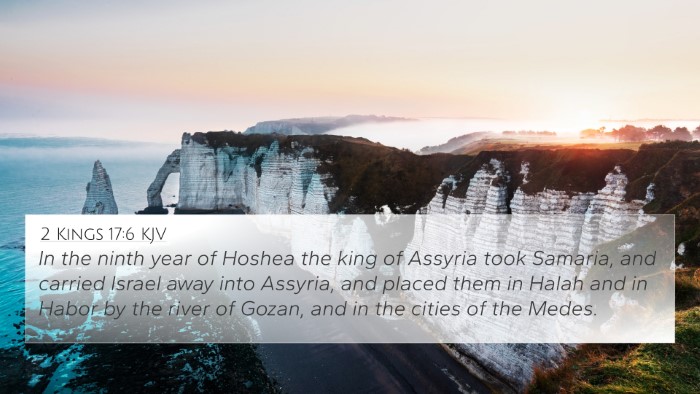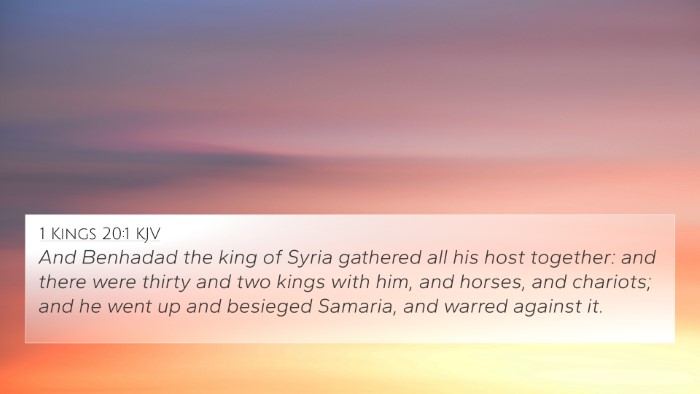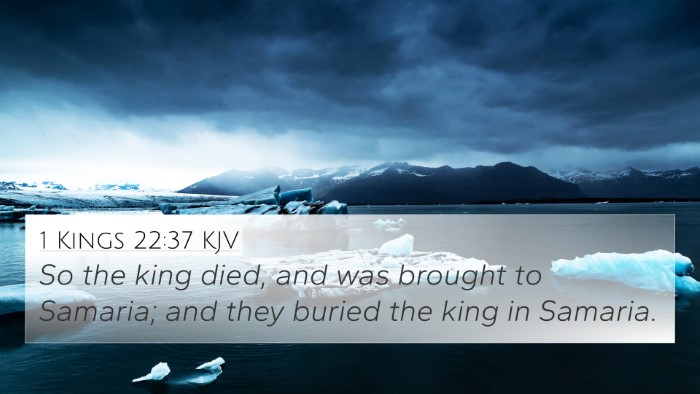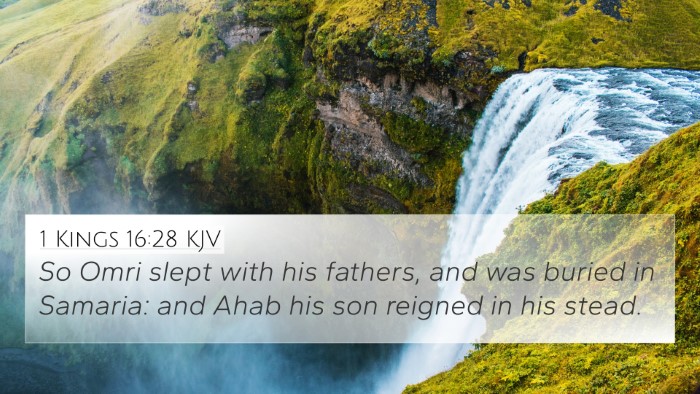Understanding 1 Kings 16:24
Verse Context: In 1 Kings 16:24, we encounter the political and spiritual landscape of Israel during a tumultuous time. This verse mentions the construction of a significant city, Samaria, by the infamous King Omri, illustrating the blend of secular ambition and divine judgment that characterizes much of the historical narrative in the books of Kings.
Verse Interpretation
Matthew Henry's Commentary: Matthew Henry points out that Omri's act of purchasing the hill and building Samaria was not only a testament to his political acumen but also an illustration of his disregard for God's command. This act signifies a turning point in Israel's history, highlighting the human inclination towards power and material gain at the expense of divine principles.
Albert Barnes' Notes: Barnes elaborates that Omri's establishment of Samaria was calculated to unite the northern tribes under one capital, suggesting a degree of wisdom in governance. However, he also emphasizes that Omri’s reign marked significant spiritual depravity, leading the people away from God. It exemplifies a conflict in priorities, where political strategy overrides faithfulness to the covenant.
Adam Clarke's Commentary: Adam Clarke adds depth by discussing the location of Samaria, noting its strategic advantages. He interprets Omri's actions as furthering Israel's stability in a fractured nation. Yet, Clarke juxtaposes this stability with the moral implications of Omri's actions, particularly the worship of Baal that ensued, underlining a key theme of disobedience and its consequences.
Key Themes
- Political Ambition vs. Spiritual Disobedience: 1 Kings 16:24 serves as a critical reflection on how political leaders often prioritize power over piety.
- The Rise of Idolatry: The verse foreshadows the moral decline of Israel as it moves further into idolatry under Omri's reign.
- Significance of Location: The city's strategic positioning symbolizes not only a physical foundation but also a pivotal moment in Israel's history.
Cross-References
1 Kings 16:24 connects with several crucial biblical passages that enrich our understanding of this text:
- 1 Kings 12:25-33 - Discussion of Jeroboam's leadership and idolatry.
- 1 Kings 16:8-10 - Context on Omri's rise to power.
- Amos 3:14 - The prophetic warning against idolatry linked to Samaria.
- Micah 1:5 - Mention of Samaria’s sin and its ultimate consequences.
- 2 Kings 10:1-11 - The ending of Baal worship showing the legacy of Omri's idolatry.
- Isaiah 7:9 - The importance of faith and reliance on God contrasted with political machinations.
- Matthew 6:24 - The principle of serving two masters in relation to earthly pursuits vs. divine obedience.
Conclusion
In summary, 1 Kings 16:24 serves as a profound reminder of the intertwining of governance and faith, illustrating the long-term implications of human decisions that stray from divine commands. By utilizing tools for Bible cross-referencing, we can explore the intricate tapestry of scripture, revealing themes of righteousness, judgment, and the call to faithfulness. This verse, along with its connections, encourages believers to seek understanding and teach practical applications pertinent to contemporary faith walks.
